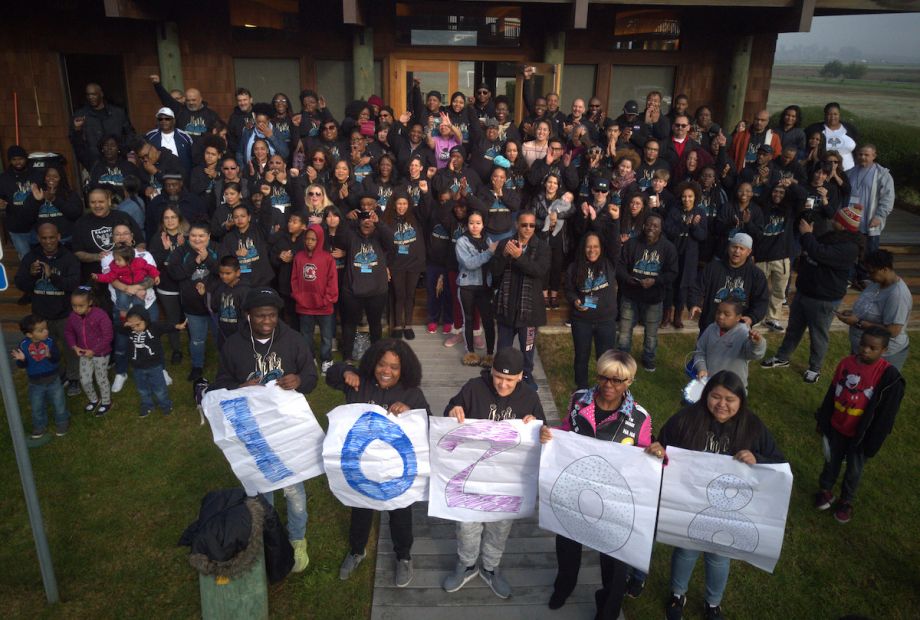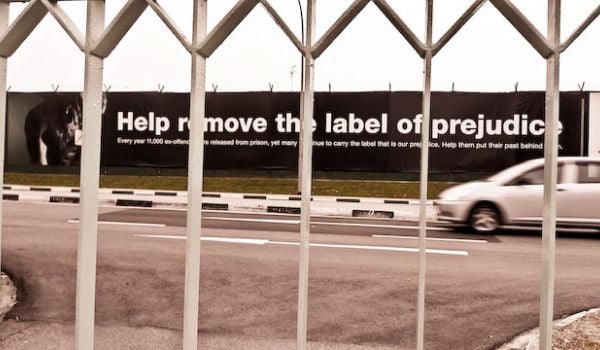When Monica Allison’s son was facing charges and awaiting trial incarcerated on Philadelphia’s State Road, she had no idea what to do. She didn’t know what to expect from the legal process — what the steps were and in what order or what she could expect from her son’s defense attorney, to name a few questions.
“Being new to the system and trying to navigate it on your own — that’s the reason for the hub,” Allison says. She’s referring to Philly’s Haddington Participatory Defense Hub, one of over 40 hubs across the country that work with folks facing charges and incarceration, as well as their families. Their aim is to reduce the inequitable harms of the criminal justice system and, as they say, turn time served into time saved.
The hubs make up the national Participatory Defense Network that started in San José, California in 2008. It was a natural evolution of the community organizing work that Silicon Valley De-Bug, a community advocacy group devoted to “debugging” the system, does around police accountability.
“We have members who were being profiled by the police, assaulted by the police,” explains Raj Jayadev, coordinator of both Silicon Valley De-Bug and its Participatory Defense Network. “People started coming to us not just for what was happening to them at the point of contact with police, but the ensuing violence with the system after the fact.”
The group was originally hesitant to enter a new and unknown territory to them. But Jayadev and company eventually realized that “we were cutting against our fundamental belief of collective power to protect community” by holding back. So they jumped in, deploying “the same mechanics of fundamental community organizing onto a court system that’s been pretty isolated from that sense of community power,” he says.
The goal became bringing families together to support and learn from each other through the process in order to ultimately “be an extension of the defense team and impact the outcome of these cases,” Jayadev says. The result is a model they’ve dubbed participatory defense.
Through the hubs, “people will learn different things that have worked, from how to tell their loved one’s story in a way that humanizes them beyond a case file to how to dissect a police report and point out lies in a prosecutor’s case and how to push a defense attorney to make sure they’re zealously defending their loved one,” he explains.
Participatory defense’s expansion has been just as organic as its origins. Organizations from across the country, from religious groups to youth organizations, started reaching out to De-Bug learn how they could do participatory defense where they were. Around 2013, De-Bug started offering trainings; these trainings now entail a two-day, in-person session that covers how to run weekly hub meetings, work with attorneys, obtain and understand discovery materials like police reports, and assemble what they call a social biography.
This last element is particularly important. Many busy public defenders will only reach out to a defendant’s family at the last minute for what they might call character letters. Surprised and daunted by the task, it’s often difficult for families to know what to say and how to say it and on a short timeline to boot.
Through the hubs, social biographies are put together with plenty of time. Rather than resorting to vague platitudes, organizers instruct families on how to write letters and create videos that “really respond to any of the judge’s or the court’s or the prosecutor’s issues,” Jayadev says. “For example, developing a really clear vision of what a re-entry plan would look like with stabilizing sobriety forces set up around them.” By including the challenges and traumas that land people where they are, “it paints a totally different picture,” he adds.
Today, as the network has begun expanding into post-conviction cases as well, De-Bug estimates that its efforts in San José alone have resulted in more than 1,600 years of time saved.
Family members engaged in participatory defense emphasize that it also “builds a sense of community,” Allison says.
“For me, that was the most important part because when you have an incarcerated loved one, you feel like you’re on an island,” she says. “But even though every situation is different, the process is the same. To be able to have people around you who know what the process is and who can empathize with you [gives] that sense of support.”
The work isn’t without its challenges, though. Allison says that it can be tough to keep post-incarcerated people involved in the program once they’re out. Naturally, many people want to move on and put the experience behind them as quickly as possible.
But family members like Allison tend to stick around more.
“My son fusses at me all the time,” she says. “He’s like, ‘Mom, I’m home. Why are you still doing this?’ and I’m like, ‘Because there’s 1,000 more people out there just like you.’”

Cinnamon Janzer is a freelance journalist based in Minneapolis. Her work has appeared in National Geographic, U.S. News & World Report, Rewire.news, and more. She holds an MA in Social Design, with a specialization in intervention design, from the Maryland Institute College of Art and a BA in Cultural Anthropology and Fine Art from the University of Minnesota, Twin Cities.
Follow Cinnamon .(JavaScript must be enabled to view this email address)
















